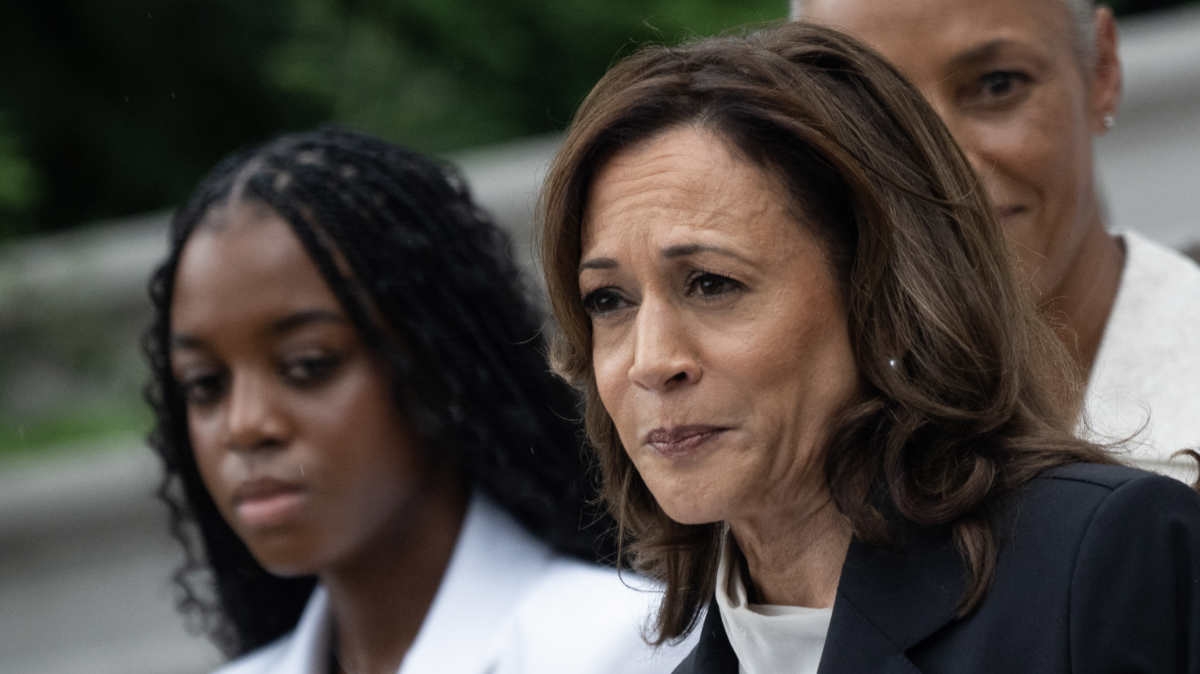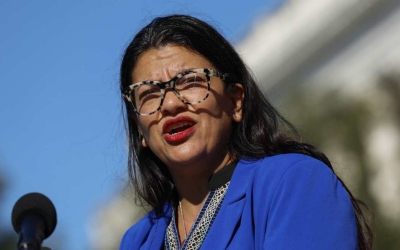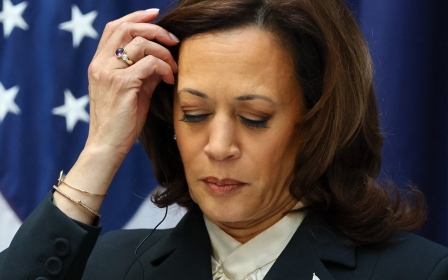Progressive lawmakers endorse Harris, pro-Palestinian groups hold out

Progressive US lawmakers mainly lined up behind Vice President Kamala Harris after US President Joe Biden endorsed her candidacy on Sunday, even as pro-Palestinian groups and other activists criticised the move.
In a post on X, Democratic lawmaker Ilhan Omar endorsed Harris on Sunday, and thanked Biden for his "years of service". Omar has been critical of Biden over his support for Israel’s war on Gaza.
“Thrilled to support @KamalaHarris as our Democratic nominee and remain committed to working alongside her to defeat Donald Trump in November,” she wrote.
Alexandria Ocasio-Cortez, another member of the so-called progressive “Squad” group in Congress, also endorsed Harris, saying on X that Harris "will be the next President of the United States. I pledge my full support to ensure her victory in November”.
Democratic Congresswoman Ayanna Pressley also backed Harris.
New MEE newsletter: Jerusalem Dispatch
Sign up to get the latest insights and analysis on Israel-Palestine, alongside Turkey Unpacked and other MEE newsletters
All lawmakers are part of the Congressional Progressive Caucus, including 101 self-declared progressive lawmakers. The group also endorsed Harris.
Democratic Congresswoman Rashida Tlaib, the only Palestinian-American member of Congress who is also a member of the Caucus, and the smaller "Squad", was notably silent.
Dr Jill Stein, who ran as the Green Party's presidential candidate in 2012 and 2016 and is currently also running for president, harshly criticised what she called Biden being "removed from power", and refused to endorse Harris or the notion that policies on Gaza would change.
"Don't be fooled. The same @DNC elites that put him in power will replace him with another tool for Wall Street and the war machine. We will continue to fight oligarchy, empire and genocide like our lives depend on it. Because in fact they do," she wrote in a statement on X.
Echoing the same sentiment, Briahna Joy Gray, a former national press secretary for Bernie Sanders and influential podcast host, posted a picture of bodybags from Palestine on X, with the caption: "Reasons for leftists to not vote for Kamala".
Pro-Palestinian groups hold off on endorsements
Tlaib has perhaps been the most outspoken member of Congress against the Biden administration’s support for Israel. During speeches on the House floor, Tlaib burst into tears while describing the impact of Israel's offensive on besieged Palestinians in Gaza.
In May, she addressed a Nakba remembrance ceremony, saying, "I know the Nakba never ended,” as she accused the Israeli government of using “starvation as a weapon of war” and recounted the bloody death toll of Israel’s offensive.

At least 39,000 Palestinians, mainly women and children, have died since 7 October when Israel launched its offensive on Gaza in response to the Hamas-led attacks on southern Israel that killed around 1,200 people and saw more than 200 taken as captives back to Gaza.
The broadly positive response from progressive lawmakers to Biden’s decision to endorse Harris contrasts with pro-Palestinian groups, who believe the vice president’s governing style will be an extension of Biden’s time in office.
The Abandon Biden campaign, which has gained little traction among most democratic lawmakers, invited Harris to meet with them.
“Our demands remain unchanged: call for and pressure an unconditional ceasefire in Gaza. The new candidate must address these critical issues and break from the destructive legacy of the current administration,” the group said in a letter.
The Uncommitted National Movement, which made some headway among Arab and Muslim American Democratic voters in Michigan and Wisconsin, called on Harris to “take a clear stance against weapons for Israel’s war and occupation against Palestinians”.
After the Hamas-led 7 October attacks on southern Israel, Harris voiced “ironclad” support for Israel’s security, similar to nearly every US lawmaker and Biden administration official.
Harris did call for an immediate ceasefire to the war in March, but analysts generally saw that move as part of the Biden administration’s policy to ratchet up rhetorical pressure on Israel, even as it continued backing its ally military. Biden himself later called for an immediate ceasefire in Gaza.
Middle East Eye delivers independent and unrivalled coverage and analysis of the Middle East, North Africa and beyond. To learn more about republishing this content and the associated fees, please fill out this form. More about MEE can be found here.




